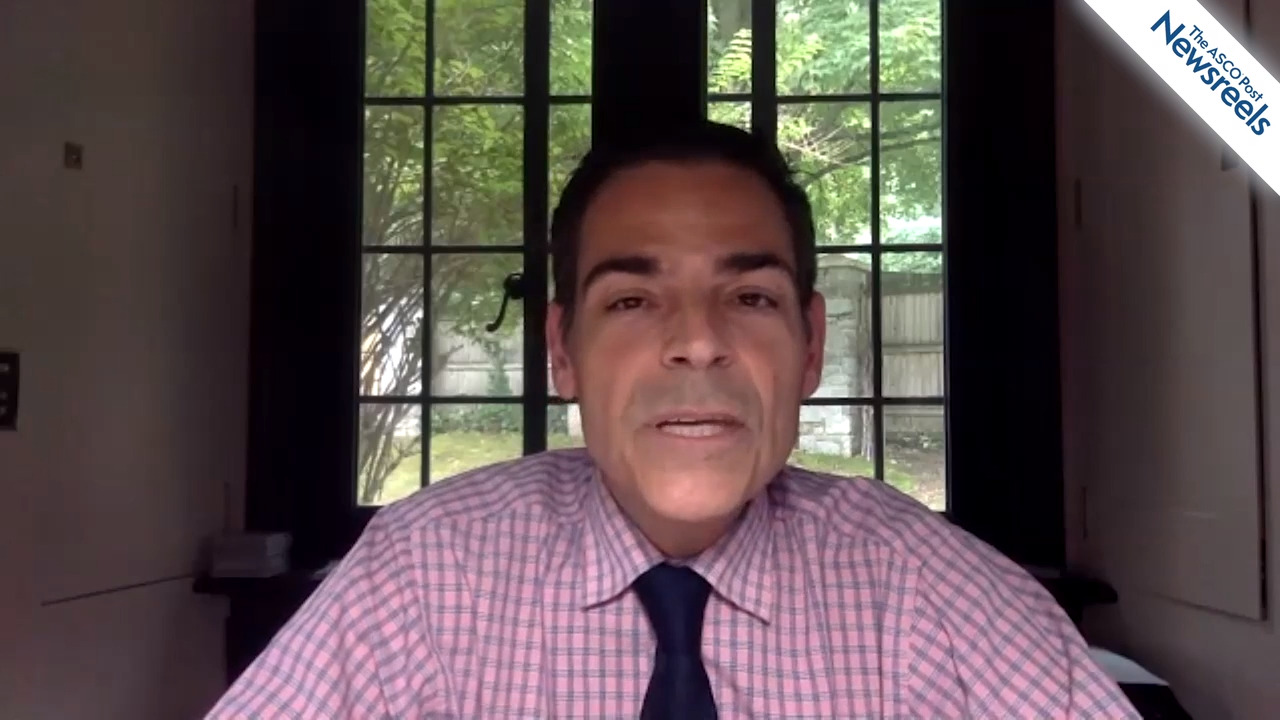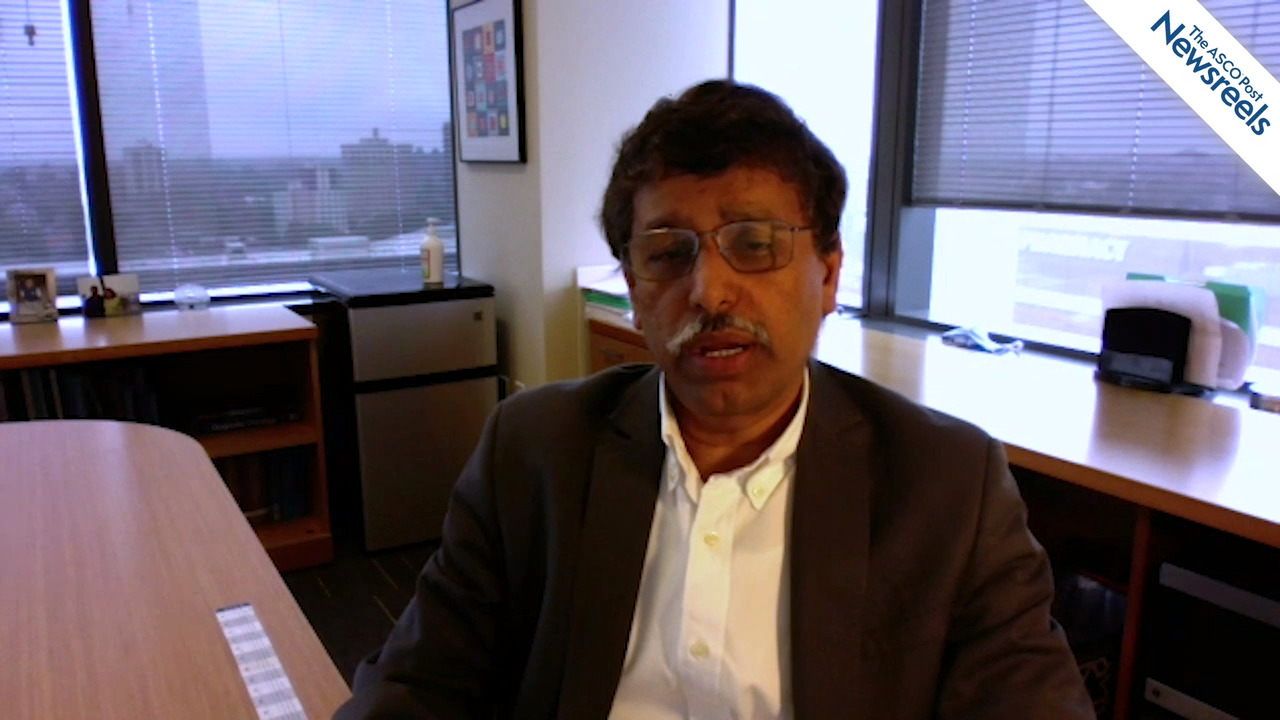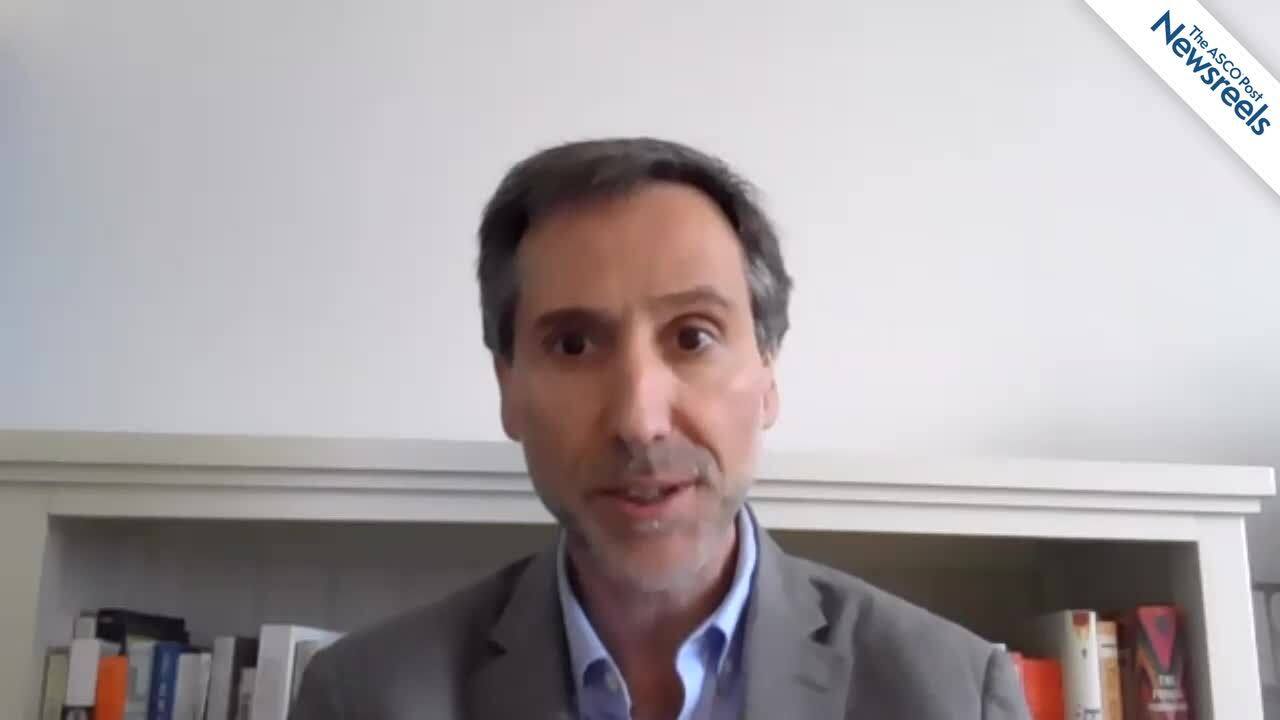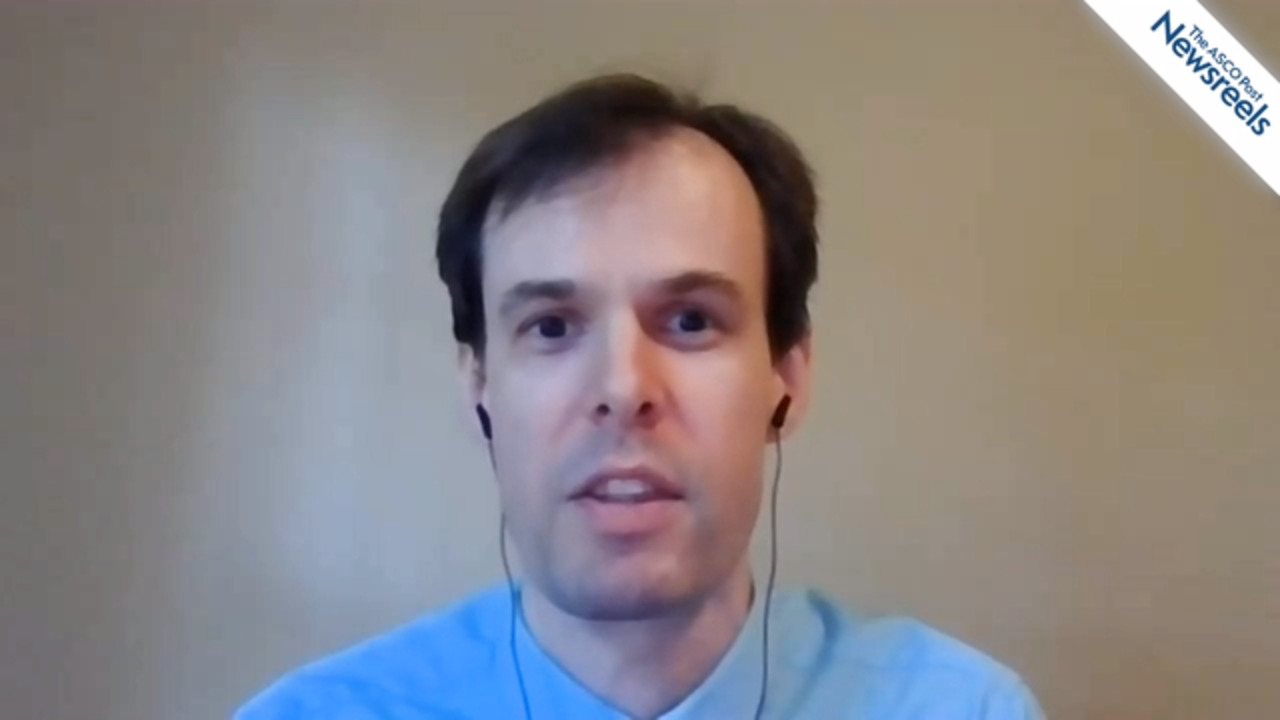Kala Visvanathan, MD, on Ovarian Cancer: Lowering Mortality With Lipophilic Statins
AACR Virtual Annual Meeting 2020 II
Kala Visvanathan, MD, of Johns Hopkins Bloomberg School of Public Health, discusses her analysis of data from more than 10,000 women with ovarian cancer. The results suggest that atorvastatin and simvastatin, lipophilic statin cholesterol-lowering drugs, reduced ovarian cancer death rates (Abstract 5782).
The ASCO Post Staff
Silvia Formenti, MD, of Weill Cornell Medical College, discusses her continuing work, and the promising results emerging, in combining radiotherapy with immunotherapy to boost abscopal response rates. This combination therapy extends the use of radiotherapy to promote antitumor T-cell responses for both local and metastatic disease (Session ED37).
The ASCO Post Staff
Xavier Llor, MD, PhD, of Yale University School of Medicine, discusses the steep rise of early-onset colorectal cancer over the past 15 years, which cannot be explained by genetic predisposition but may be prompted by environmental factors (Session ED35).
The ASCO Post Staff
Ramaswamy Govindan, MD, of Washington University School of Medicine, discusses sex differences in lung cancer, including variations in treatment response, and the state of research in the field (Session ED20).
The ASCO Post Staff
Antoni Ribas, MD, PhD, of the University of California, Los Angeles, Jonsson Comprehensive Cancer Center, summarizes the opening plenary session that addressed epigenetics and early detection, how the aging microenvironment governs response to therapy, AI-driven precision medicine, reprogramming human T cells, and opportunities for the future.
The ASCO Post Staff
Adam C. Palmer, PhD, of the University of North Carolina at Chapel Hill, discusses combining immune checkpoint inhibitors with other cancer therapies to provide patients with more chances of a response. In principle, similar benefits may result from sequential or biomarker-stratified treatments, which could be valuable in cases where toxicities may prevent full-dose combinations (Abstract 1047).





